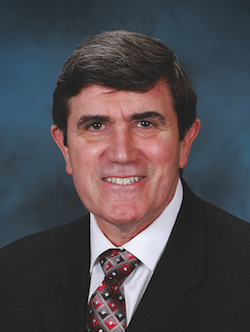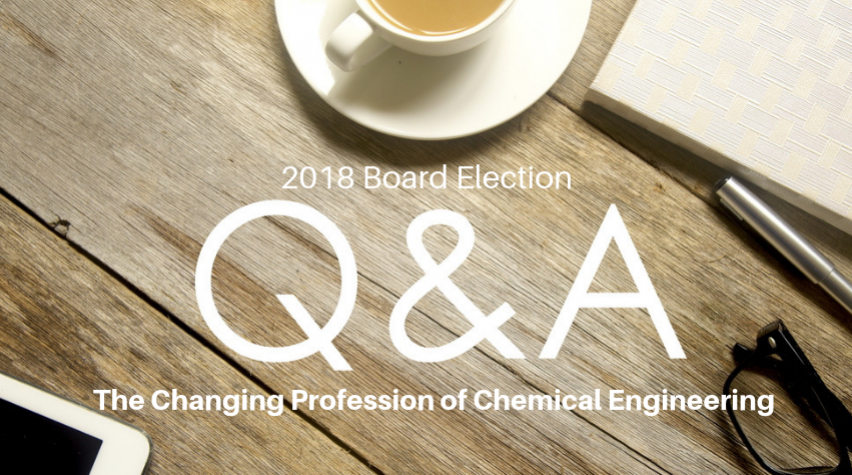
Voting for next year's AIChE Board of Directors is under way as of August 27th at http://www.aiche.org/election. Have your say and help direct the future of AIChE by voting!
The Young Professionals Committee (YPC) asked potential members of AIChE's board four questions about Young Professionals and AIChE. Answers are shown in alphabetical order by position and the candidate's last name.
In addition to learning about the candidates here, you can also learn more about candidates and the election process on the AIChE election page.
Q: In what ways is AIChE helping new chemical engineers to adapt to the changing profession?
For President-Elect
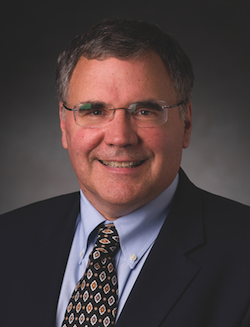
Monty Alger
AIChE is investing in new products and services for its members in today’s rapidly changing world. We live in an era of dramatic change in the U.S. labor markets. Hiring companies cannot find people with the skills necessary for 21st century jobs, and workers at all levels find it more and more difficult to climb a career ladder — or even to get onto the bottom rung. The rapid evolution of technology and business has accelerated and intensified the need for new approaches to business, careers, education, and innovation. Doing nothing today means falling behind.
RAPID is AIChE’s new public/private partnership to bring research and market together for new modular design of chemical processes. The AIChE Academy continues to acquire new content to connect engineering practice with core skills in the discipline.
The Center for Chemical Process Safety remains the standard for all companies to maintain excellent safety procedures and practices. AIChE has a unique opportunity to bring together multiple sectors and perspectives to conceive and create new models of operation. Send me an invite on LinkedIn if you’re interested in discussing this topic. I look forward to hearing about the ideas and practices you are pursuing.
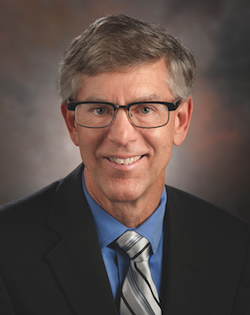
Dan Lambert
There was so much I didn’t learn in school that I really needed to know to be successful in my job. For example, we talked about pumps in a few of my ChE classes, but I didn’t learn enough to pick out the right type of pump, let alone size one. Luckily, I attended a pump course and learned about the Crane handbook.
Things are different now, with so much available for free on the internet. But it is still hard to find good information that isn’t either too simple or too complex. AIChE is helping new chemical engineers through the AIChE academy. This is a place where you can find an array of educational offerings from free webinars to face-to-face classes.
AIChE is continually developing new Academy curricula; check out the four that they have completed (Process Safety, Financial Analysis, Instrumentation & Control, and Process Intensification. I attended several AIChE short courses as a young engineer — my favorite was distillation in practice (I was a process engineer responsible for separating light water from heavy water in a six-column distillation train with 444 bubble cap trays). The course was extremely helpful to me. I’ve taken a couple of the eLearning classes and they too are very good.
So, try out AIChE webinars, short courses and eLearning and I think you’ll find something that will be very useful to you. I encourage you to find a mentor in your local section, division or forum. I think you need professional friends and allies. Your company likely doesn’t care as much for your career growth as they should. Finding a good mentor that really has your best interests in mind is important in developing to your ultimate potential.
For Secretary
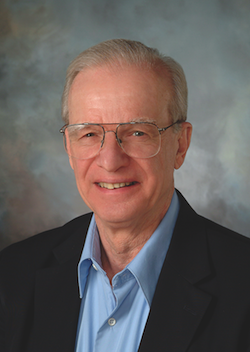
John P. O’Connell
AIChE recognizes how professional lives have changed, now encompasses more and broader disciplines for chemical engineering, and is acting on the need for guidance about adapting. Examples of programs and materials on careers are at https://www.aiche.org/resources/careers, and the AIChE Academy now has the 1275 (!) courses on professional development. Inquiries and advice about technical, professional, and social topics can often be found at https://engage.aiche.org.
Expansion has been made in both traditional and into nontraditional areas at conferences and with on- and offline programs. Significant developments have recently been made to broaden AIChE's structure and activities.
The Institute has strongly embraced diversity and taken initiatives for inclusiveness, especially at meetings (e.g., https://www.aiche.org/conferences/aiche-annual-meeting/2018/events). Resources have become available to support new initiatives, such as projects funded by the AIChE Foundation.
New and exciting opportunities for the Institute are appearing, arising from member surveys and activism, and being evaluated for alignment with the profession's directions and for economic value. Being involved in such activities allows networking and informing about developments in the profession, as well as providing routes to leadership for young professionals.
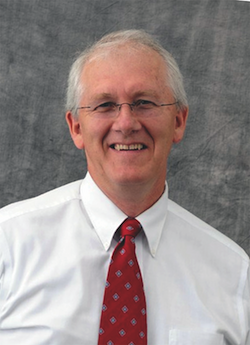
Joseph D. Smith
AIChE provides a window into the ever-expanding technical world of chemical engineering. The technical conferences hosted by AIChE are the best way to see this happen. From space travel to process safety and process sustainability, AIChE hosts events that bring together the world's top engineers and scientists in new and emerging fields and provides an opportunity to meet and become acquainted with them as you expand your professional network. AIChE also helps new chemical engineers adapt to their changing profession by providing networking opportunities at the local section.
Having someone you can meet with regularly at local section meetings provides an opportunity to ask questions and get insight into new jobs and opportunities, and learn what you need to know about the emerging fields of chemical engineering that they may be involved in at their jobs.
Another way AIChE helps a new chemical engineer adapt to the changing profession is by providing a venue where the new chemical engineer can learn new skills through continuing education opportunities.
For Director
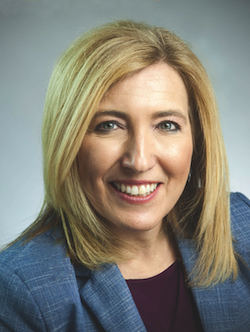
Ana P. Davis
Just as our profession has changed over the years, so has AIChE’s variety of educational programs to help solve the world’s most challenging problems. AIChE offers resources in new areas of chemical engineering, such as: sustainability and environment, biomanufacturing, nanotechnology and intellectual property.
In addition, with the increased focus on process safety globally, AIChE’s Center of Chemical Process Safety (CCPS) has been instrumental in reshaping the process safety conversation, where a vision of zero catastrophic safety incidents is now a possibility, thanks to the work of this organization. If you are looking to advance your professional skills, AIChE can also provide training and education on the latest technologies.
The nature of our profession inherently leads to continuous improvement, and AIChE can be the vessel to help you adapt and stay relevant in your career.
Brian H. Davison
Chemical engineering continues to become much more diverse. Therefore, AIChE is developing more diversity of programming. AIChE has created and supported specialized affiliate societies like the Society of Biological Engineering to provide specialized niches and opportunities within the AIChE structure and support network.
There are an increasing number of webinars and forums on a number of topics. AIChE continues to offer and develop various portable economic benefits like life insurance at competitive group rates, in addition to job search tools.
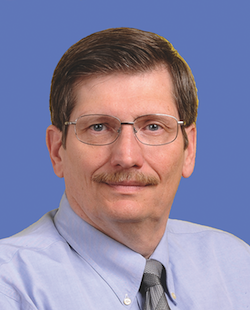
Walter L. Frank
AIChE offers new chemical engineers assistance in a variety of ways. The Young Professionals (YP) Community program certainly offers a number of resources for new chemical engineers. Chemical Engineering Progress often contains articles providing information addressing the career development needs of younger chemical engineers. And, as I have pointed out in other answers to questions in this series, participation in Annual Neetings can be quite beneficial to the young engineer.
At the Spring Meeting, in particular, the annual Loss Prevention Symposium typically includes at least one track of papers that are of a more mentoring or tutorial focus on process safety-related topics that should be helpful to younger engineers. With respect to how the profession is changing, I believe we can expect a continued increase in emphasis on process safety. The expectations of regulators and communities with respect to process safety performance are increasing, and the better-informed companies are responding accordingly.
As I have mentioned elsewhere, your job will likely have process safety-related responsibilities, whether or not your job title indicates this. AIChE is developing a series of online courses on process safety-related topics, which are aimed at undergraduates but still suitable for recent graduates. CCPS has a number of good textbooks on process safety topics.
One thing that I always urge younger engineers to do is to obtain professional engineering licensure as soon as you meet the experience requirements (hopefully, you took the EIT exam during your senior year). I have never stamped a drawing or a report in the 36 years that I have been a PE. But, I am confident that having those two letters after my name has opened opportunities for me. Increasingly, engineers are leaving industry and going into consulting where a PE may be essential. AIChE provides helpful information on seeking registration at www.aiche.org/professional-engineering-licensure.
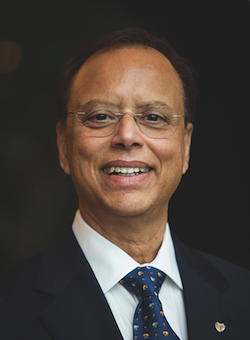
Syamal Poddar
AIChE is proactively strategizing and implementing steps to stay ahead of the curve to keep our profession relevant to the needs of the society we serve. Some examples are: relevant topics of interest in programming and bringing in experienced speakers during national meetings; organizing meetings on subjects of interests; focusing on sustainability challenges in food, water, and energy (both conventional and unconventional, and renewable).
Besides these, webinars on various topics of interests are being organized and delivered by subject experts, and they are diversifying to cover other areas of relevance and cater to those areas of interests. The two most recent ones are: Society of Biological Engineering and Biomolecular Engineering.
The culture of safety, health, and environment (SHE) from the inception of EPC of new plants and revamp as well as day-to-day operation of production facilities are being impacted by CCPS not just in the US but in many other countries.
The initiative is underway to bring plant safety-related awareness to the teaching curricula by educating teachers in undergraduate and graduate studies. These initiatives are embracing new chemical engineers to adapt to changes.
The fundamentals of chemical engineering are so robust that adapting to new feedstocks for various products for industrial and personal use at the adaptation by new chemical engineers is easily achievable. Many leaders in the institute are very much engaged in critically analyzing such challenges. To name a few: dialogues by Phil Westmoreland & Jeff Sirrola and Ankur Pariyani’s article. These are all available on the AIChE website.
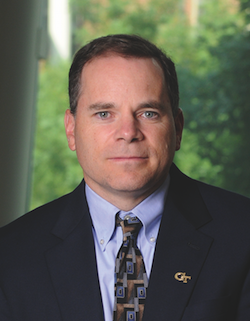
David S. Sholl
AIChE is working hard to provide training resources to young (and not so young) chemical engineers in both technical and non-technical topics. All of us need to continue to learn and adapt throughout our careers. AIChE can provide a useful community to help its members achieve this important goal.



